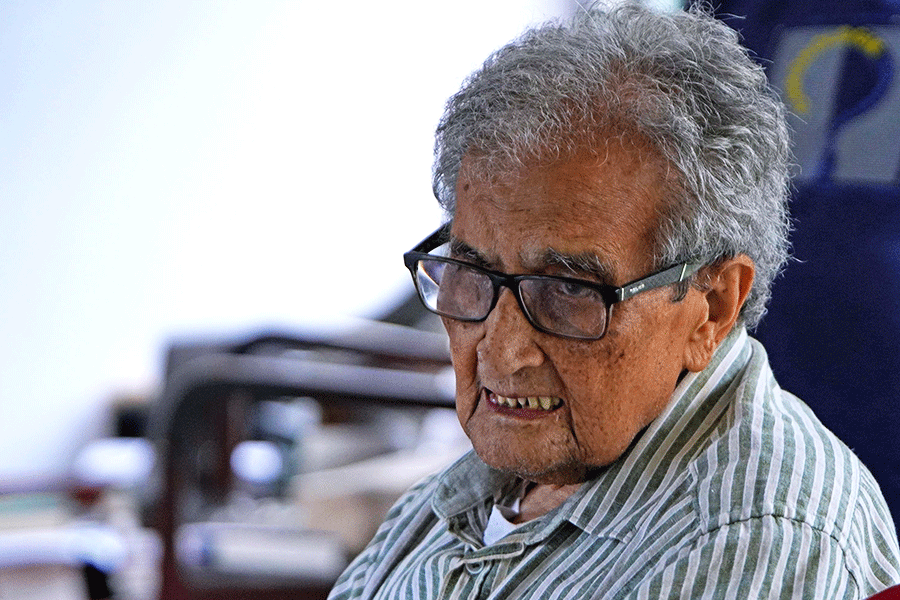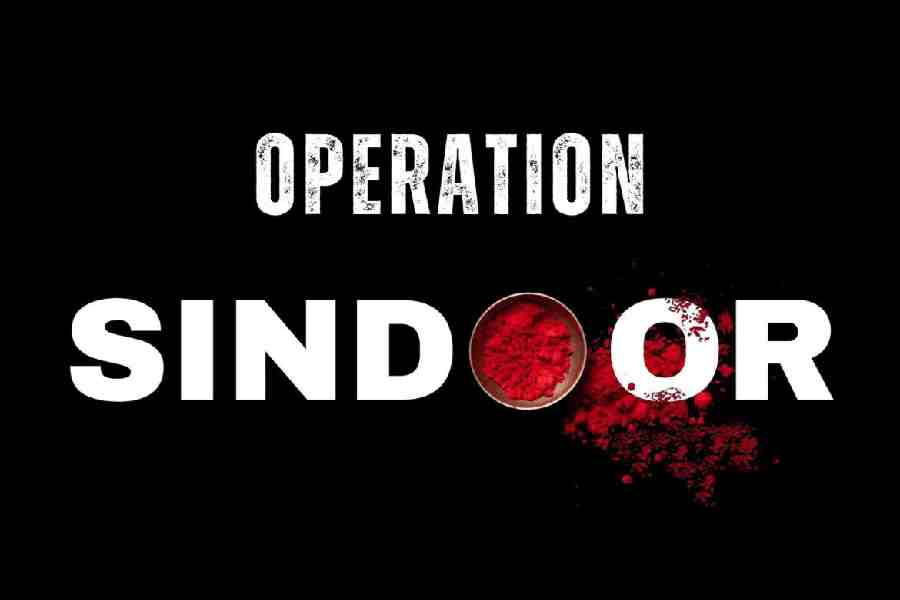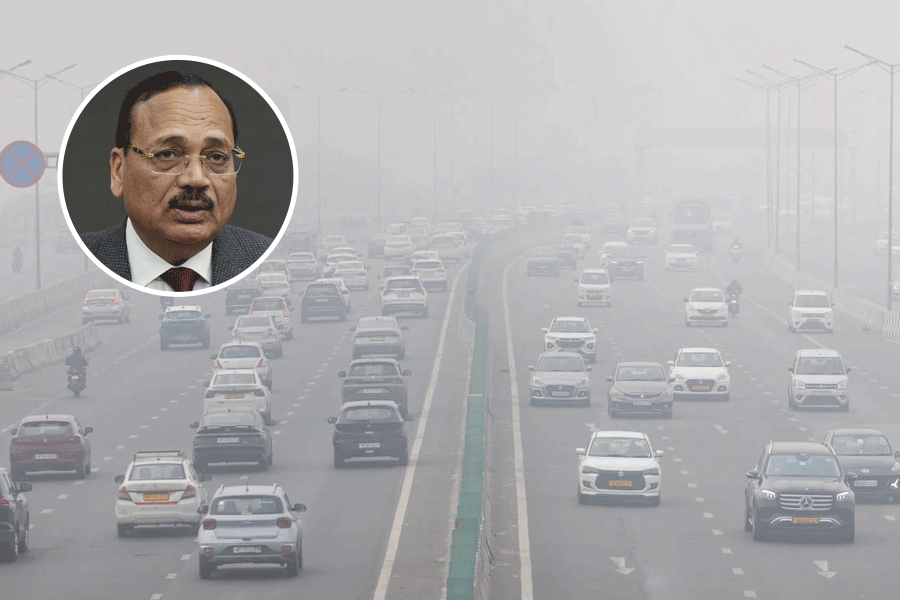.jpg)
On the eve of Mother Teresa's canonisation, a debate was raging in America's Catholic strongholds: did the nun from Calcutta foresee 22 years ago that Hillary Clinton had the potential to be President of the United States?
Elsewhere in America, in erudite foreign policy circles, some are reflecting on how the spectacular blossoming of the Indo-US friendship last week was what Mother Teresa inadvertently started more than two decades ago.
Bill and Hillary Clinton have documented in their autobiographies Mother Teresa's influence on the Clinton presidency's actions to transform America's engagement of India.
A fortnight after the first anniversary of his assumption of office, Bill had Mother Teresa over at the White House.
The stunning events on that freezing February morning, as the frail, slightly hunched "living saint" emerged from behind a deep pink curtain and took the White House pulpit, made it clear that the normally unflappable President and First Lady were unprepared for what followed.
Mother Teresa did what few visitors, ordinary or extraordinary, deprived or powerful, do in the seat of the US presidency. She confronted the Clintons and took the fight for her beliefs right to the face of the President and First Lady.
In the first year of his presidency, through executive orders, Bill had expedited clinical trials of mifepristone, one of the most popular abortion pills in the US since it became available in 2000.
Fully aware that Hillary was in the thick of crafting a revolutionary health-care plan that made abortion "widely available" by her own admission, Mother Teresa launched a broadside against abortion.
"I feel that the greatest destroyer of peace today is abortion, because Jesus said: 'If you receive a little child, you receive me.' So every abortion is the denial of receiving Jesus, the neglect of receiving Jesus," the Mother said as the high point of her well-argued pro-life case.
The audience erupted in applause. Then they stood up and clapped without pause for six minutes.
Throughout all this the Clintons sat motionless, their faces registering no emotions as live TV cameras focused on the first couple's reaction - or lack thereof, according to a fascinating account of that prayer breakfast in the book God and Hillary Clinton by Paul Kengor, a professor at Grove City College in Pennsylvania.
Along with the Clintons who did not join the clapping, Vice-President Al Gore and his wife Tipper too sat motionless, not reacting to what was happening around them.
America's National Catholic Register wrote yesterday as preparations were in full swing to proclaim Mother Teresa as a saint: "Maybe the little nun saw it coming. Maybe she perceived that Hillary Clinton was poised to one day have an even greater impact. Perhaps something spoke to her (Mother Teresa). And perhaps a sign of her genuine saintliness was her vigorous attempt to reach out to Hillary Clinton and try to salvage, if not improve, the road ahead."
Mother Teresa was not one to give up, as everyone who has had anything to do with her knows. She did not give up on Hillary, as this year's US presidential candidate admits in her autobiography, Living History.
After delivering her White House speech against abortion, Hillary writes that "she wanted to talk to me. Mother Teresa was unerringly direct. She disagreed with my views on a woman's right to choose and told me so. Over the years, she sent me dozens of notes and messages with the same gentle entreaty. Mother Teresa never lectured or scolded me. Her admonitions were always loving and heartfelt.... I also disagreed with her opposition to birth control."
Eventually the two women found common ground on adoption. "We shared the conviction that adoption was a vastly better choice than abortion for unplanned or unwanted babies."
Mother Teresa was never one to miss an opportunity if one presented itself. She sought the First Lady's help in setting up a home for orphans in Washington.
"When I agreed to assist with the project, Mother Teresa revealed her skills as a relentless lobbyist. If she felt the job was lagging, she wrote letters asking what progress we had made. She sent emissaries to spur me on. She called me from Vietnam, she called me from India, always with the same message: When do I get the centre for babies?" Hillary writes.
When the orphanage opened and Mother Teresa flew in from Calcutta, "like a happy child, she gripped my arm in her small, strong hand and dragged me upstairs to see the freshly painted nursery.... Her enthusiasm was irresistible. By then I fully understood how this humble nun could move nations to her will".
Hillary represented the US at Mother's funeral in Calcutta.
Bill writes in his autobiography, My Life, that Mother Teresa's impact on his decision-making was profound.
The 42nd US President writes about his state visit to India in 2000 that "I was going to India to lay the foundation for what I had hoped would be a positive long-term relationship".
Indeed, that is what it became. Hillary had influenced her husband a good deal to change course on India after she visited the country as First Lady in 1995. Her first stop in Delhi on that visit was one of Mother Teresa's orphanages.
After tributes were paid by world leaders, many of whom knelt before Mother Teresa's body, her casket was taken to Mother House. A reporter from this newspaper and Hillary were about the only outsiders present at her final rites.
Hillary writes: "The nuns formed a circle around the coffin and stood in quiet prayer, then Sister Nirmala asked me to offer a prayer. I was taken aback and hesitated, feeling inadequate to the occasion. Then I bowed my head and thanked God for the privilege of having known this tiny, forceful, saintly woman during her time here on earth."

.jpg)








